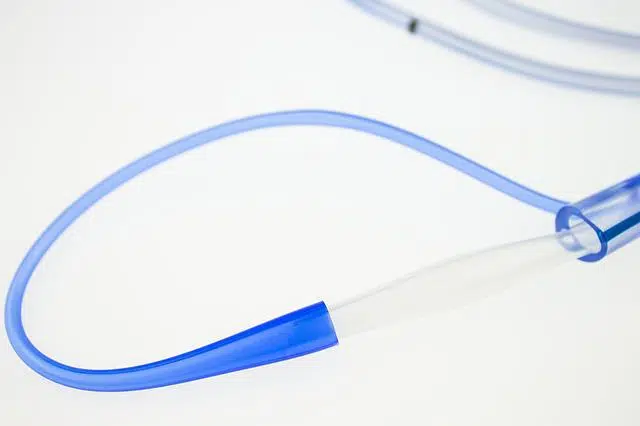
A probe to aspirate secretions
The Latin word aspiration came into Spanish as aspiration . This is what the act and consequence of inhaling is called, a verb with several meanings: it can refer to entering air into the lungs or trying to achieve something, to mention two meanings.
action of inhaling
Aspiration, therefore, can consist of inhaling , whether air , particles or other elements. In some cases this aspiration is voluntary, while in other situations it is an accident.
For example: "The girl brought the flower to her nose and, with a deep inhalation, sought for the aroma to penetrate her body" , "The child had to be hospitalized due to carbon monoxide inhalation" , "The workers have protection mechanisms to avoid inhalation of toxic gases .
pulmonary aspiration
When vomit , saliva , or food is drawn into the airways, pulmonary aspiration occurs. Aspiration pneumonia is often generated, a condition linked to aspiration due to regurgitation of material from the digestive tract or oropharynx.
Among the various reasons why a person can breathe foreign material into the lungs are the following:
* lack of lucidity due to the effect of some drug or as a consequence of surgery or illness;
* be in a coma;
* consume alcoholic beverages in excess;
* addiction to any drug that affects the body's alertness;
* a complication during the administration of general anesthesia;
* advanced age;
* complications swallowing food or saliva.
medical procedure
As a medical procedure, aspiration is a process of removing fluid through a suction mechanism . If a person cannot expel secretions on their own, aspiration can be used to remove these secretions from the airway .
Excess mucus can prevent air from entering the mouth and passing to the lungs , so the procedure known as aspiration of secretions can be crucial for the patient's recovery. Before carrying it out, the doctor must detect the problem through abnormal breathing sounds and the visible presence of mucus in the blocked airways.
The procedure begins by sanitizing the doctor's hands and preparing his instruments, which include a probe, a saline solution and an electrical device to produce aspiration. It is recommended that the patient be seated with an inclination of 30 degrees. Having put on sterile gloves , the professional must connect the probe and slowly insert the catheter to a depth of around 25 centimeters .
Only then should you begin to suction the secretions, for a time that does not exceed 20 seconds, while removing the probe , rotating it with each step. If two or more aspirations are necessary, the tube should be replaced or sterilized each time. Furthermore, so that the patient's mucosa is not irritated, it is advisable to allow him or her to rest between each session.

In childhood we aspire to be like the adults around us.
Desire or desire
An aspiration, on the other hand, is a wish or desire . Aspiring to achieve something, in this framework, means having the intention , the will or the ambition to achieve it: "My greatest aspiration as a footballer is to play for the national team," "The president's aspiration is to reduce poverty by at least five points." in the next two years» , «Since I completed my postgraduate degree, I have no other academic aspirations» .
Aspirations usually first appear when children begin to learn about the professions and vocations of the adults around them. Whether it is our parents, relatives or even people who appear in the media, in early childhood we can imagine that in the future we will be like them. Of course, fictional characters can also influence. Towards adolescence, these desires take on a more realistic form , even in a completely different sphere. As years and decades pass, aspirations can change dramatically as we become more aware of our own limitations .
